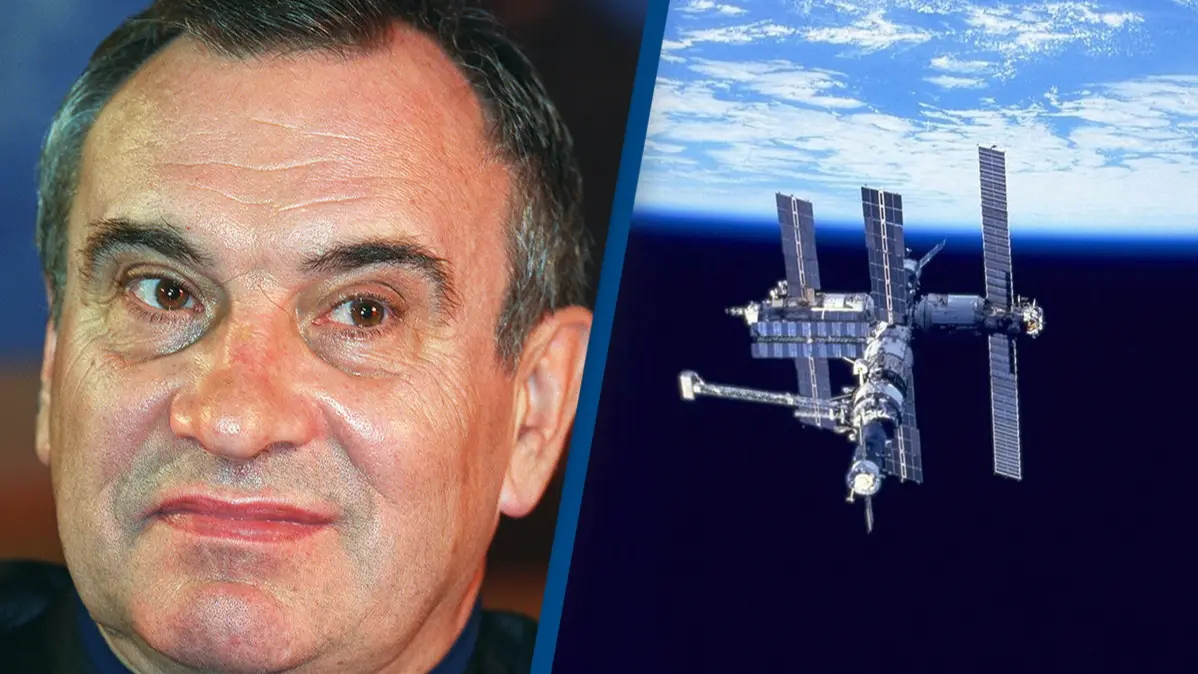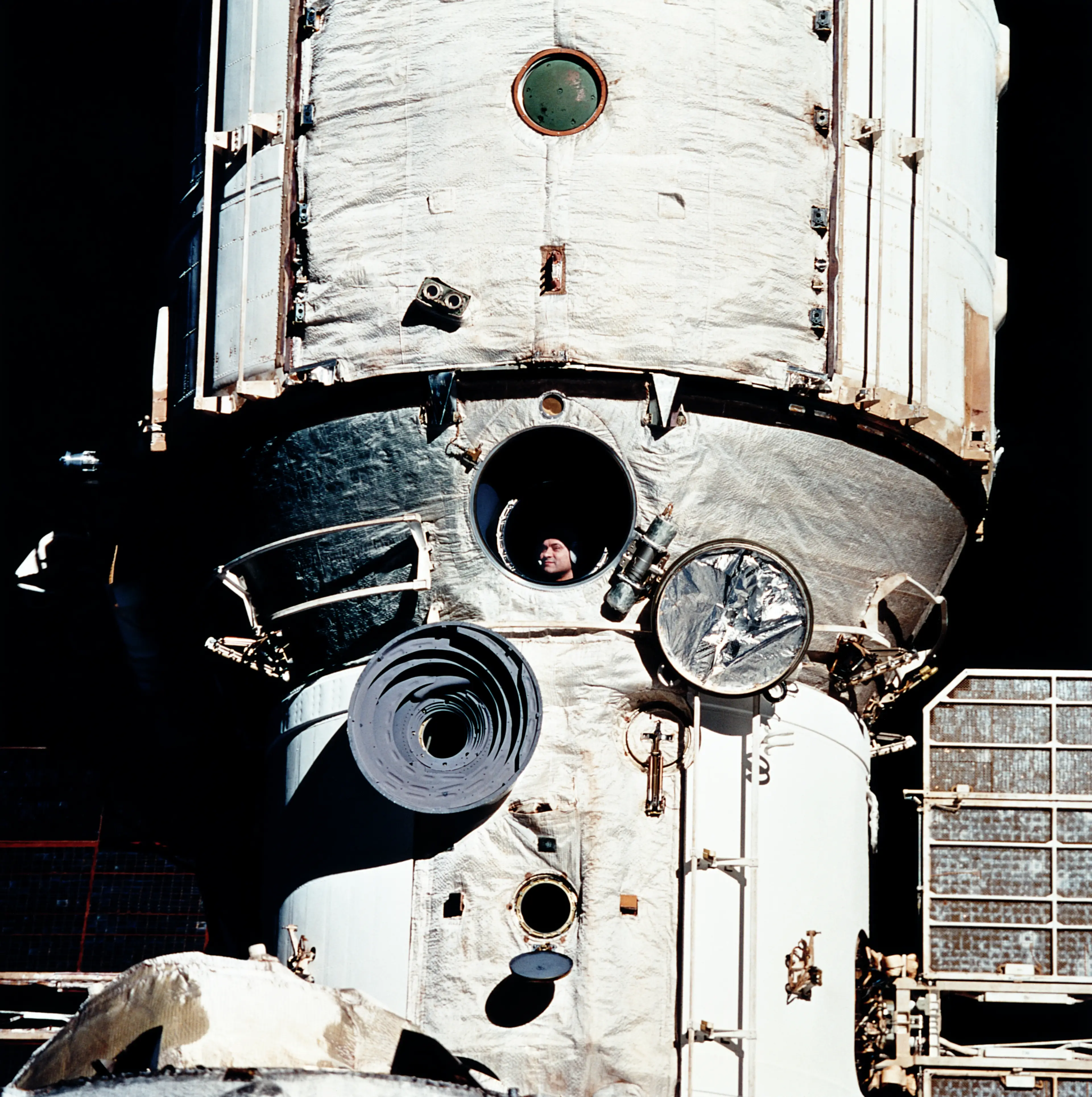
Topics: Space, Science, Health, Technology, Russia

Topics: Space, Science, Health, Technology, Russia
An astronaut who broke the record for the longest amount of time spent in space revealed the toll the trip took on his body.
Space travel, as we're already familiar with, is no easy feat. Only 610 people in the world have ventured as far as the Earth's orbit as of February 2024.
Michael Foale, who cheated death before his module began spinning out of control in a terrifying ordeal, can certainly testify.
But for one Russian cosmonaut, the chance to live on the Mir space station for a record-breaking 437 days was too good an opportunity to miss.
Advert
Valeri Polyakov and his crew mates headed to the station in 1994 in order to 'demonstrate the ability to work on Mars and come back in good health.'

Polyakov was incredibly nervous ahead of his second ever mission - and for good reason. The Soviet Union was dissolving and a lot of money had been poured into the project, at a time where there really was none.
Fortunately, all went smoothly and the team were able to conduct 25 experiments on how micro-gravity impacted the human body.
But the astronaut revealed one particularly fascinating effect the mission had on him.
In space, without the usual force of gravity, the spine straightens out.

This boosted Polyakov's height from six foot two and a half inches to six feet five inches.
As if he needed the extra height!
It took a good few months back on Earth for him to return to his normal size.
The extra few inches also posed an issue for Polyakov's trip back home.
As reported by RocketStem, he explained: “When you come back, you have to fit yourself in the chair that was made for your size as you were coming up. If you wear a special suit, it is called ‘penguin,’ it kind of presses you down. In that case you will have less of a problem.”
Data from Polyakov's mission has been used by researchers to determine that humans are able to maintain a healthy mental state during long-duration spaceflight just as they would on Earth.
Speaking in 1996, the astronaut explained: "I had to show that it is possible to preserve your ability to function after being in space for such a long time. But the gravity on Mars is .37. And since I was able to stand up and walk on the Earth wearing a space suit, it shows that [a] human is able, will be able to stand up and walk on Mars.”
The astronaut set the record for longest cumulative time in space with 678 days over his two missions. This was surpassed in 1999 by cosmonaut Sergei Avdeyev with a total of 747 days in space during three different missions.
If you know anyone who's insecure about their height, maybe politely suggest they take a trip to space.